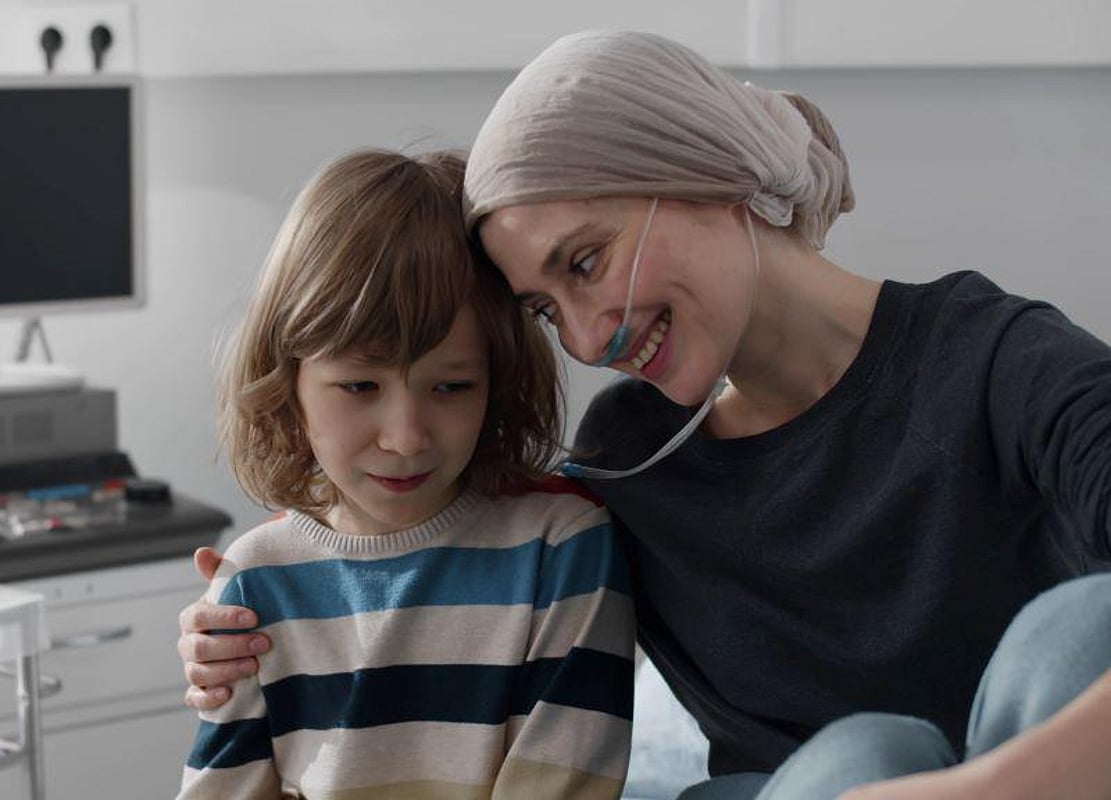AACR: Resistance Mechanisms to CAR-T Cell Therapy ID’d in ALL
TUESDAY, April 12, 2022 (HealthDay News) — For patients with acute lymphoblastic leukemia with resistance to C19 CAR T-cell therapy, resistance mechanisms that can be detected prior to treatment have been identified, according to a study presented at…
Learn MoreYour Personality May Safeguard Your Aging Brain
TUESDAY, April 12, 2022 (HealthDay News) — Certain personality traits may make older adults more or less vulnerable to waning memory and thinking skills, a new study suggests.The study, of nearly 2,000 older adults, found that those high on the “cons…
Learn MoreLate-Onset Alcohol Abuse May Signal Dementia
TUESDAY, April 12, 2022 (HealthDay News) — Late-onset alcohol abuse may be a presenting symptom of dementia, according to a study published online April 5 in the Journal of Alzheimer’s Disease.Elisa de Paula Franca Resende, M.D., Ph.D., from the Hosp…
Learn MoreHow the ‘Magic Mushroom’ Drug May Tweak the Brain to Ease Depression
TUESDAY, April 12, 2022 (HealthDay News) — Psilocybin — the active component in “magic mushrooms” — may help rewire the brains of people with depression.Psychedelics including psilocybin have shown promise in treating many mental health disorders in …
Learn MoreAHA News: Couple Had to Wait Until After Daughter’s Birth to Learn Exactly What Was Wrong With Her Heart
TUESDAY, April 12, 2022 (American Heart Association News) — At their babies’ 20-week ultrasound, Bridget and Jerrid Conway were eager to catch another glimpse of their twin girls. In the exam room, the technician moved the wand over Bridget’s stomach…
Learn MoreAACR: Adding Nivolumab to Neoadjuvant Chemo Slows Resectable NSCLC
TUESDAY, April 12, 2022 (HealthDay News) — Neoadjuvant nivolumab plus chemotherapy results in significantly longer event-free survival and increased pathological response among patients with resectable non-small cell lung cancer (NSCLC) compared with…
Learn MoreSubcutaneous mAb May Benefit High-Risk Outpatients With COVID-19
TUESDAY, April 12, 2022 (HealthDay News) — For high-risk outpatients with mild-to-moderate COVID-19, subcutaneously administered monoclonal antibody (mAb) treatment with casirivimab and imdevimab is associated with reduced risk for 28-day hospitaliza…
Learn MoreOverall Risk of Myopericarditis Low After COVID-19 Vaccine

TUESDAY, April 12, 2022 (HealthDay News) — Myopericarditis is rare following COVID-19 vaccination, with an overall incidence not differing significantly for those receiving COVID-19 vaccines or non-COVID-19 vaccines, according to a review published online April 11 in The Lancet Respiratory Medicine.
Ryan Ruiyang Ling, from the Yong Loo Lin School of Medicine in Singapore, and colleagues conducted a systematic review and meta-analysis to examine the incidence of myocarditis following vaccination. Data were included from 22 studies, with 405,272,721 vaccine doses.
The researchers found that the overall incidence of myopericarditis was 33.3 per million vaccine doses, with no significant difference seen for people who received COVID-19 vaccines and those who received non-COVID-19 vaccines (18.2 versus 56.0). The incidence of myopericarditis was significantly higher following smallpox vaccinations (132.1) compared with COVID-19 vaccination, but was not significantly different after influenza versus COVID-19 vaccination (1.3) or in studies reporting on other non-smallpox vaccinations (57.0). For those receiving COVID-19 vaccines, significantly higher incidence of myopericarditis was seen for males versus females, those aged
“The overall risk of myopericarditis appears to be no different for this newly approved group of vaccines against COVID-19, compared to vaccines against other diseases,” a coauthor said in a statement. “The risk of such rare events should be balanced against the risk of myopericarditis from infection and these findings should bolster public confidence in the safety of COVID-19 vaccinations.”
One author disclosed financial ties to Baxter.
Learn MoreDMARDs Not Linked to Alzheimer Risk for Seniors With RA
TUESDAY, April 12, 2022 (HealthDay News) — For patients with rheumatoid arthritis aged 65 years and older, the risk of Alzheimer disease and related dementia (ADRD) does not differ with tofacitinib, tocilizumab, or tumor necrosis factor (TNF) inhibit…
Learn MoreParental Cancer Tied to Poorer Health Outcomes in Children

TUESDAY, April 12, 2022 (HealthDay News) — Parental cancer is associated with school absenteeism, medical care unaffordability, increased health care use, and poor mental health among children, according to a study published online April 11 in JAMA Pediatrics.
Zhiyuan Zheng, Ph.D., from the American Cancer Society in Atlanta, and colleagues examined associations of parental cancer with children’s school absenteeism, medical care unaffordability, health care use, and mental health. Analysis included children (aged 5 to 17 years) living in families with (1,232 children) and without (33,870 children) a history of parental cancer and participating in the National Health Interview Survey (2010 to 2018).
The researchers found that a history of parental cancer was adversely associated with school absenteeism, medical care unaffordability, health care use, and mental health among children. When sequentially adjusting for child, parent, and family characteristics, the magnitude of the associations was reduced. In adjusted analysis, odds ratios for school absenteeism of one day or more declined from 1.33 (95 percent confidence interval, 1.11 to 1.59; P = 0.002) to 1.12 (95 percent confidence interval, 0.93 to 1.34; P = 0.23) and for any child hospital emergency department visit from 1.56 (95 percent confidence interval, 1.31 to 1.86; P
“Health care professionals and policies should consider the unique needs of affected children and develop school-, parent-, and family-directed strategies to ameliorate the negative associations between parental cancer and children’s health,” the authors write.
Several authors disclosed financial ties to AstraZeneca.
Abstract/Full Text (subscription or payment may be required)
Editorial (subscription or payment may be required)
Learn More